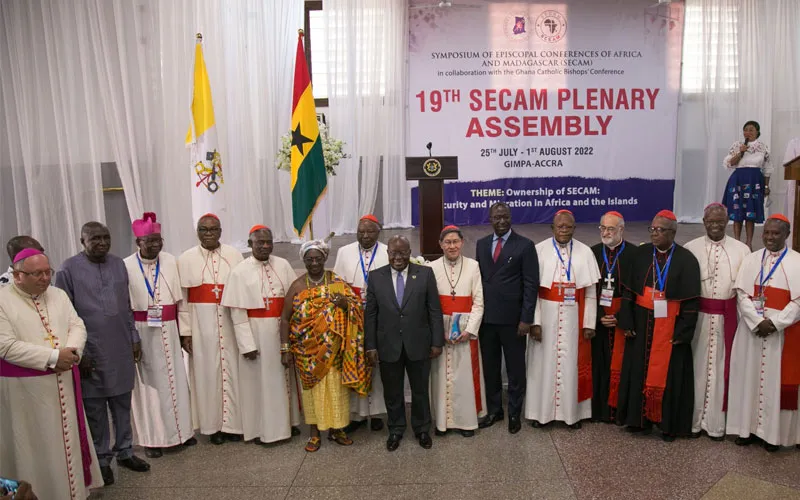Accra, 31 July, 2022 / 9:05 pm (ACI Africa).
Sustainable and lasting security across the globe including Africa can be achieved when human dignity is both valued and protected, a Pro-Prefect of the Dicastery for Evangelization has told delegates of the 19th Plenary Assembly of the Symposium of Episcopal Conference of Africa and Madagascar (SECAM).
In his speech during the opening ceremony of the Plenary that has brought together over 120 Catholic Bishops in Africa in Ghana’s capital city, Accra, Luis Antonio Cardinal Tagle urged members of SECAM to “please show to the continent and to the world that true sustainable and lasting security comes when we value and protect each one’s dignity.”
Security comes “when human beings are treated as brothers and sisters; when we share their joys and pains,” Cardinal Tagle said during the Tuesday, July 26 event that was held at Ghana Institute of Management and Public Administration (GIMPA) Conference Center.
Sustainable and lasting security can be achieved “when each one has access to the goods of the earth and the basic needs for human growth,” the Vatican-based Cardinal said.
“When migrants and refugees, forced to leave their homes due to poverty, violence and environmental disasters, are welcomed, protected and integrated into our communities,” he said, then true security can be expected.








